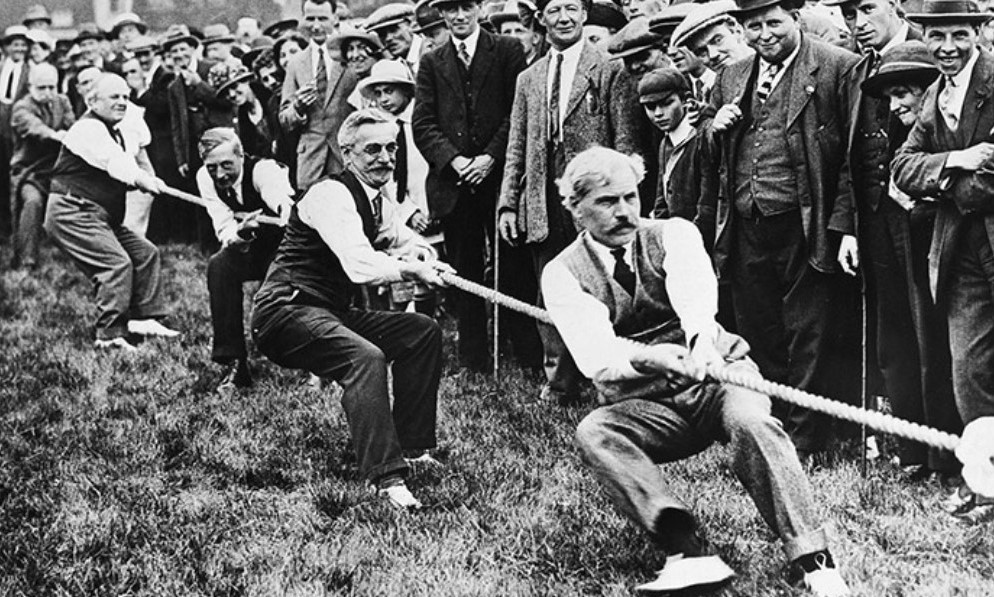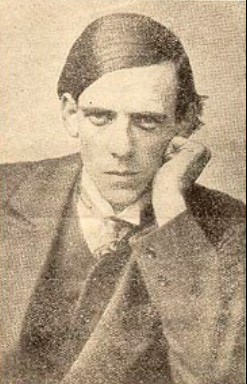By Cain O’Mahony
It is a frustrating time for socialists in the Labour Party at present, given the lurch to the right by the party leadership and the increasingly bureaucratic stranglehold over party democracy.
In my local Labour Party, we had a mass influx of new enthusiastic members under Jeremy Corbyn, often getting over 100 people at Constituency meetings. All this has unfortunately dissipated under the Starmer leadership. The majority have either left or do not attend anymore: some have gone over to the ‘get rid of the Tories at any cost’ brigade, while the left-wing rump that remains is pretty demoralised.
Some have left to join the Green Party, while many talk of splitting away to some (as yet non-existent) alternative party, and are enthusiastic about Jamie Driscoll in the North East, or think Jeremy Corbyn should stand as an independent.
A lot of their ideas are not thought through, and they are being led more by anger than what should be tactical clear-headedness. The truth is, at this stage of the development of the consciousness of the labour movement, split offs from the Labour Party have historically always crash-landed. Their only achievement has always been to take away another layer of good socialists out of the Labour Party.
Battle lines were drawn before 1931
it is therefore worth looking at one of the largest split-offs from the Labour Party, the Independent Labour Party in 1932, in some detail.
The historical short-hand goes that the ILP split away in fury at the betrayal by Ramsey McDonald in forming a National Government in 1931. But the battle lines were drawn long before that.
The ILP were a ‘party within a party’ – with Kier Hardy, they had been among the originators of the Labour Party. At first, ‘members’ of the Labour Party were either affiliated through their trade unions or were members of the ILP. But for the first time, in 1918, ‘individual’ Labour Party membership was introduced in 1918 to replace the original federal set-up. But it was agreed that the ILP could continue as a separate organisation, and you could be a member of both the ILP and the Labour Party.
This was agreed because in many areas of the country, the ILP and not the ‘new’ Labour Party were the workers’ traditional political organisation. This was particularly true in Glasgow, because of the role of the ILP during the ‘Red Clydeside’ battles, with Glasgow returning several ILP MPs in the 1922 elections, and from the other ILP strongholds such as Bradford, Lancashire and Norwich.
But the ILP were soon discovering that with entry into Parliament, amongst some elements on the right of the new party, radicalism was giving way to being ‘pragmatic’ – Parliament for them became an end in and of itself.
As the leading ILP MP James Maxton told the 1926 ILP national conference, “The more the Labour Party becomes absorbed in the responsibilities of Parliamentary life and the more the responsibilities the Labour Party has to undertake, either as the official opposition or as the Government, the more will the tendency be for them to be entirely taken up with the immediately practicable which always creates a tendency to lose sight of the ultimate ideal.
“The ILP’s duty is to keep the ultimate ideal clearly before the working-class movement of the country. Political success for the Labour Party is a certainty, but political success is itself a poor end unless, behind the Parliamentary majority, there is a determined revolutionary Socialist opinion” (Gidon Cohen, The Independent Labour Party, 1932-1939, 2000).
The idea of a Labour Party is a risky concept for the ruling class
The British ruling class have always wanted to destroy the Labour Party – not ‘reform’ it as they may often claim, they want to destroy it. For them, it is too risky a concept, one that was reaffirmed to their horror after Jeremy Corbyn’s shock leadership victory. The ‘democracy’ they want is of the tweedle-dum tweedle-dee variety, and they will never be content until Labour has relinquished every last atom of its socialism.

Part of their weaponry is to court, cajole, bribe, corrupt, threaten and schmooze those right wing elements at the head of the Party, into making them ‘safe’ for British capitalism. The first Labour Prime Minister, Ramsey McDonald, proved a prime example in 1924. One of the factors that helped bring down the first minority Labour government was McDonald accepting the loan of a car (the equivalent today of someone giving Keir Starmer a helicopter) – and some company shares to help him run it.
The donor was then given a baronetcy in the next King’s Birthday Honours List. Fancy that! The Tory media had a field day, and the Labour vote slumped at this hypocritical display of patronage.
Clearly there were elements in the Labour Party leadership beginning to enjoy the good life. Being drawn into the bourgeois milieu, they began to become lukewarm about the socialist policies that had got them elected. Yes, of course they supported Labour’s socialist Clause IV, but it was something that would need to be accomplished gradually, at some point in the distant future after all the ‘immediate’ issues had been dealt with first.
‘Socialism in our time’ not in the distant future.
In response to the growing McDonald ethos of ‘gradualism’, the ILP agreed a policy of ‘Socialism in our time’, and not in the distant future. In addition, the ILP said any MP that did not support the new policy could not be a member of the ILP Parliamentary group, or expect ILP endorsement when standing for election, which was essential for Labour MPs in some areas of the country, in particular Scotland.
Those Labour MPs around the McDonald leadership were finding the ILP MPs in opposition to their luke warm policies, a socialist obstacle in their way. They reacted as the Labour right wing always do – not by winning the arguments in open and honest debate before the labour movement, but, then as now, by bureaucratic manoeuvres.
They changed the Standing Orders that governed the conduct of the Parliamentary Labour Party so that now, under no circumstance were members allowed to vote against a majority decision of the PLP, which would preclude the ILP MPs from tabling amendments to a Labour policy in Parliament, or voting against a Labour Government when in office.
It was this that began the discussions within the ILP about disaffiliating from Labour, even before the ‘great betrayal’ of McDonald in 1931. The battle lines were already drawn and heading for collision at the time of the election of the second Minority Labour Government in 1929.

A further cause of ILP bitterness was over the Socialism in our time doctrine. On paper, the parliamentary haul for the ILP in the 1929 General Election looked favourable. There were 37 ILP MPs as well as 123 Labour MPs who were card-carrying members of the ILP. Unfortunately, now in Parliament, it was clear many held ILP tickets as a ‘flag of convenience’ to help get them elected, and not much more. When Maxton, as Leader of the ILP Parliamentary group insisted on them all obeying the Socialism in our time doctrine, only 18 MPs accepted these conditions.
Even so, this time the Labour Party and ILP together had returned 287 MPs, putting the second Labour government on a much firmer footing, but still reliant on Liberal or Independent MPs to get legislation carried. But this new administration coincided with the Wall Street crash, with the economy quickly plunging into recession and unemployment rocketing to three million.
The British ruling class were terrified, despite the ‘steady hand’ of McDonald, that this era of capitalism in crisis would push the Labour government, under pressure from the masses, far to the left, forcing the introduction of socialist policies. This time they really would destroy the Labour Party, and they engineered what can only be described as one step short of a coup.
Tory media whipped up a storm – just as they do today
In 1931 the Labour government wanted to borrow £120 million to pay for emergency benefits for the unemployed. The Tory media whipped up a storm that this would bankrupt the country, that Labour would destroy the pound, and would bring hyper-inflation.
It was nonsense of course – as the Labour Home Secretary JR Clynes pointed out, the Tories’ frenzied response was hypocrisy when they said: “… the comparatively small debt of £120 million due to benefit social aid would ruin a country”, a country that “ … had shouldered the debt of thousands of millions which the first Great War had cost, and (the Tories) had not then been in the least perturbed.”(Herbert Tracey, The British Labour Party, 1948)
But as the frenzy reached crescendo, Prime Minister McDonald performed the greatest act of betrayal the labour movement has ever seen. He went to the Palace and informed the King that he was forming a National Government, made up of all three political parties. Not even many of the Labour Cabinet knew he intended this, and the whole labour movement was left dumbstruck.
To the credit of most of Labour Cabinet, only three Ministers defected with McDonald. But that meant the vacancies were filled mainly by Conservatives – the ‘National Government’ was merely the Tories in disguise. They forced through a budget that passed the financial crisis onto the shoulders of the working class, with massive cuts in benefits and public sector pay.
On top of this bombshell, only two months later the new National Government announced there would be a snap election, and that the election campaign would outrageously run for only three weeks. They knew they had to strike fast while Labour was still reeling from the shock.
Part Two of this article will be published soon.



